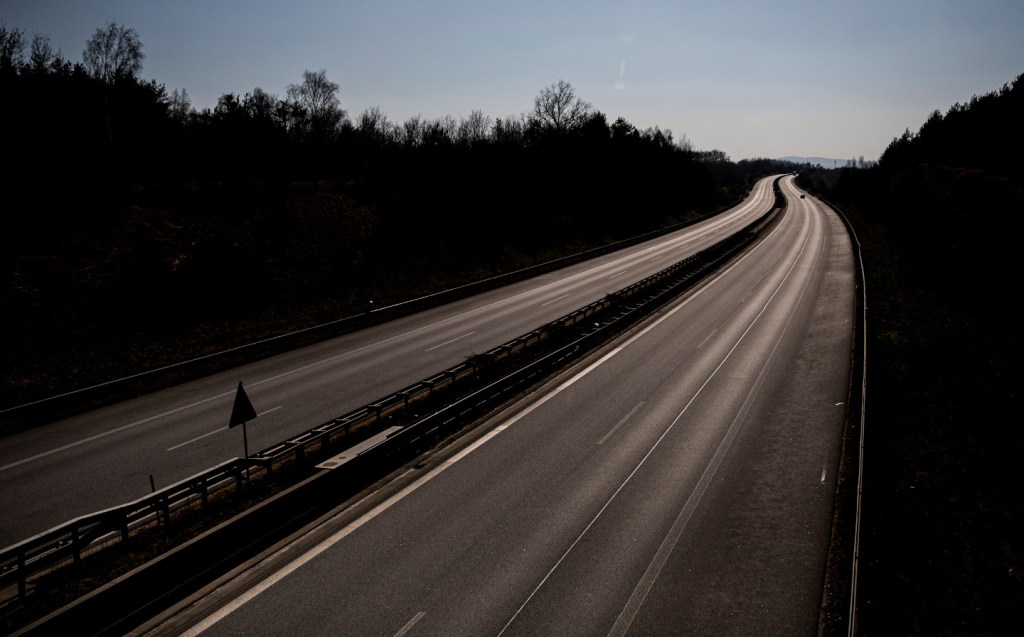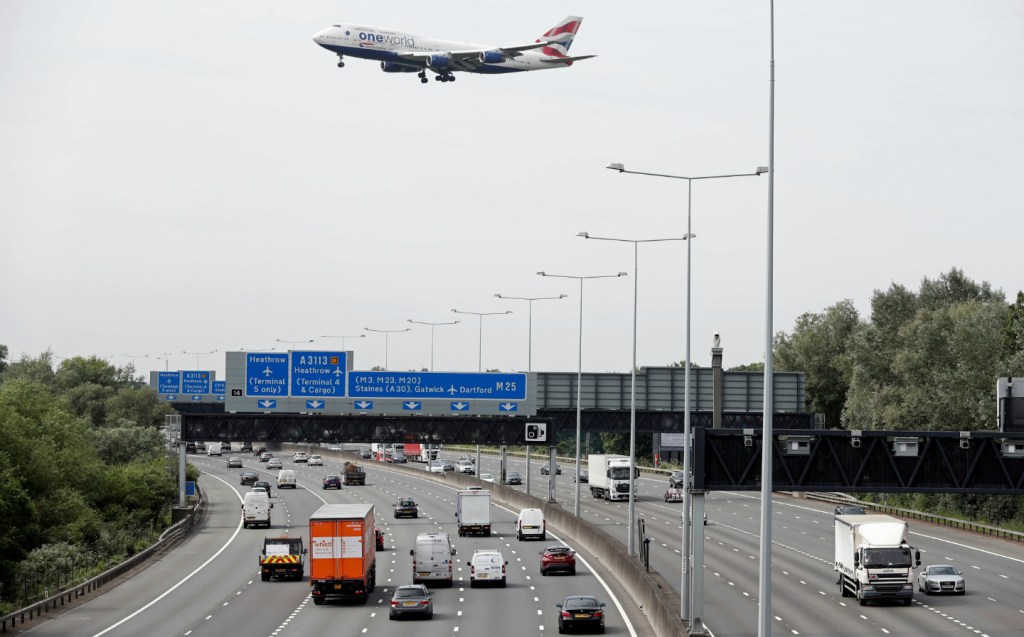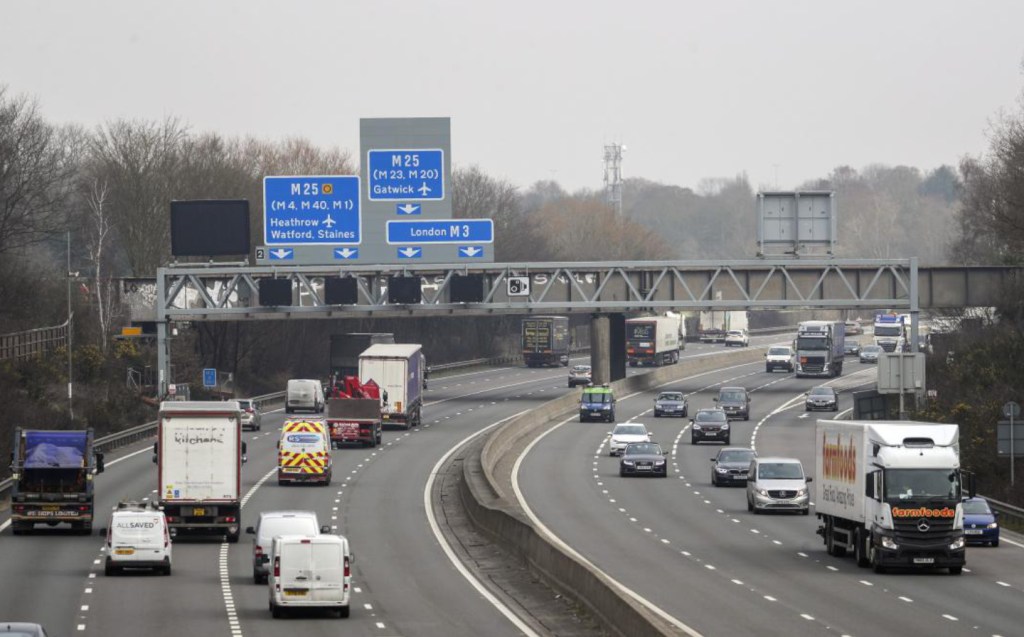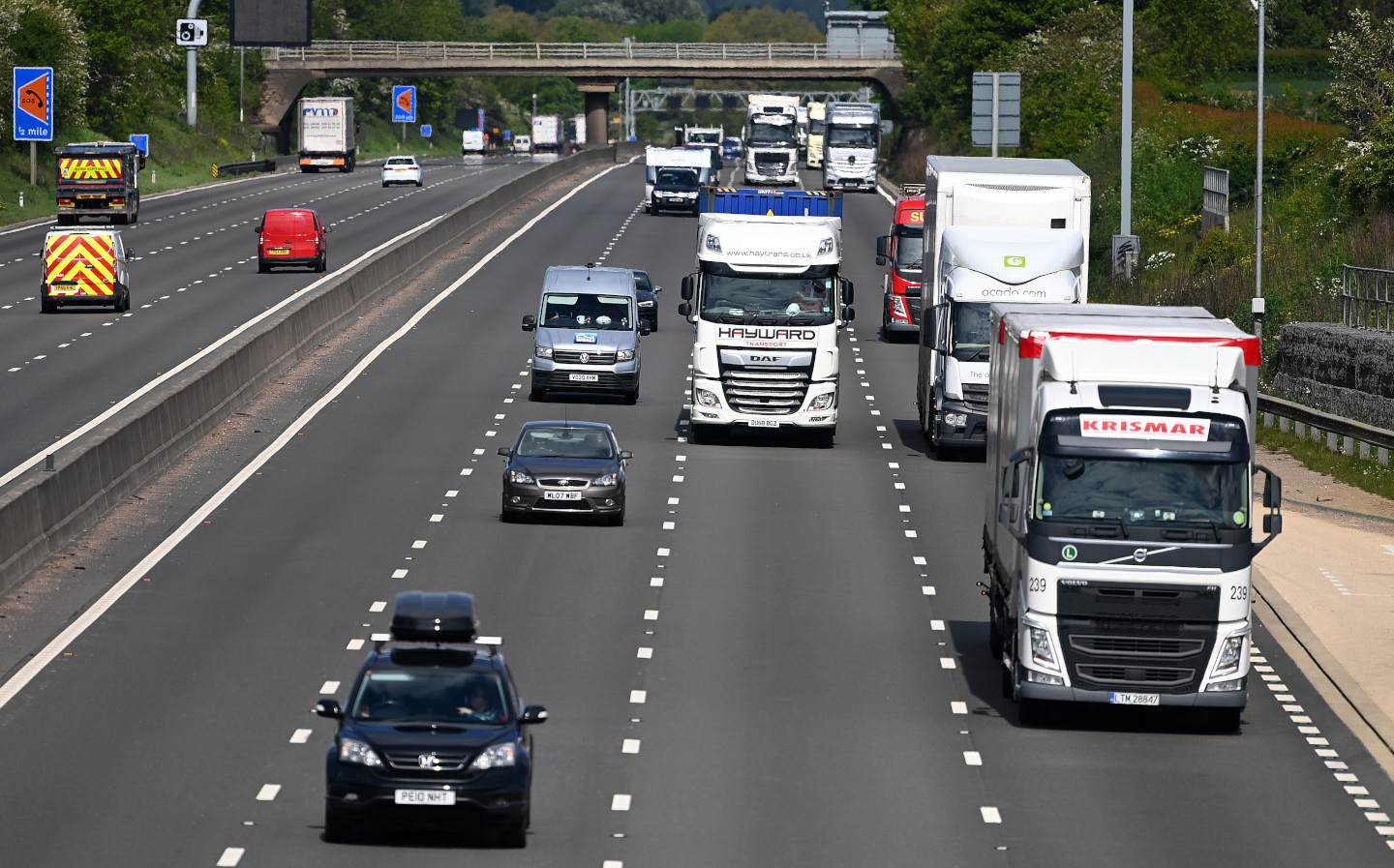Could the UK be about to scrap motorway speed limits?
Tories could also axe smart motorways
Liz Truss, currently the front-runner to become the UK’s next prime minister, has said that she will consider scrapping both motorway speed limits and smart motorways if she wins the Tory leadership contest.
Speaking at the final hustings ahead of the vote on September 5 that will decide whether she or former Chancellor of the Exchequer, Rishi Sunak, becomes prime minister, a party member asked Truss whether she would remove the mandatory 70mph motorway speed limit and let drivers decide a safe speed for themselves.
“On speed limits, we need to be prepared to look at that. I can’t give you a precise answer,” said Truss, without elaborating further.
Any such move to abolish mandatory motorway speed limits would make the UK an outlier among the countries of the world with only a small number of places such as Afghanistan, North Korea, the Isle of Man and Germany still having any derestricted roads.

Only Germany, however, is comparable on a like-for-like basis with the UK because of its extensive and well-engineered motorway network. Even at that, Germany’s situation isn’t as simple as just a full network of derestricted motorways; not all of Germany’s motorways are derestricted, limit-less roads aren’t as popular as they once were due to environmental and noise-pollution issues and there are also some significant road safety concerns.
Only 70% of Germany’s motorway network is derestricted, and even on sections that are, an advisory speed limit of 130km/h (81mph) applies, with severe penalties for causing an accident by exceeding that limit.
While the country is famous for its high-speed autobahnen, they may not last forever. ADAC — essentially the German equivalent of the AA — reviews the country’s speed limits every year and, for the first time last year, a poll of its members revealed that the majority was now in favour of capping motorway speed limits at a mandatory 130km/h.

The federal government in Germany has calculated that scrapping derestricted roads would save around two million tons of CO2 output every year, and opposition to derestricted roads comes primarily from an environmental and noise-reduction standpoint than one of safety concern.
Nonetheless, safety should be a concern in any debate about introducing derestricted motorways to the UK.
In the UK, there is currently one fatality for every billion motorway kilometres driven. That compares with Germany’s 0.95 fatalities per billion kilometres covered on motorways with speed limits. On derestricted motorways, that jumps by around 75% to 1.67 deaths.
Statistics also show that a greater proportion of Germany’s road deaths (around 12%) occur on motorways than in the UK, where the figure stands around 5%.
Ultimately, it should be borne in mind that Truss’s comment at the Conservative hustings was an off-hand remark designed to appeal to a small cohort of Tory voters rather than a clear signal of political intent.
Truss, however has, in the past, signalled support for higher speed limits including at the 2018 Conservative party conference. The idea of upping the speed limit to 80mph has also been touted by others within her party including the current Transport Secretary, Grant Shapps, in 2019. Another plan by the Conservatives to increase the motorway speed limit to 80mph in 2011 fell through due to fears about increasing emissions. Although Truss’s suggestion should, at this stage, be taken with a pinch of salt, there are certainly clear voices within her party who support the removal of motorway speed limits.
Smart motorways
Another issue raised at the leadership hustings was the topic of smart All Lane Running motorways, i.e. those without a permanent hard shoulder. When questioned on the matter, Truss replied:
“We need to review them and stop them if they’re not working as soon as possible.”

On this, both she and Sunak agree, the former Chancellor having previously said that “smart motorways are unpopular because they are unsafe” and that the government needs to “stop with the pursuit of policies that go against common sense”.
According to a National Highways report published in May, deaths or serious injuries caused by collisions with stopped vehicles on conventional motorways occurred at a rate of 0.09 victims per 100 million miles driven between 2016 and 2020. On All Lane Running smart motorways this was more than double, at 0.19.
Any attempt to abolish All Lane Running smart motorways would likely find more widespread support than removing the speed limit from some motorways. The RAC’s 2021 Report on Motoring found that 62% of drivers wanted to see a permanent hard shoulder reinstated, with 84% of those polled feeling that safety was compromised by the All Lane Running set-up.
In January, the government announced that it would not build any more new smart motorways until it had gathered a full five years of data for those built prior to 2020.
Related articles
- After reading about potential changes to UK motorways, you may want to read how the public wants 60mph motorway speed limits – according to a WWF survey
- And check out how motorists are being fined millions of pounds for inadvertently entering low-traffic neighbourhoods
- 2030 petrol and diesel car ban: 12 things you need to know
Latest articles
- Seven great automotive events to visit this summer, from F1 to art and champagne
- Watch new Porsche 911 GT3 smash Nürburgring record for manual cars
- Skoda Elroq 2025 review: Czech carmaker can’t seem to miss with its electric family cars
- Five best electric cars to buy in 2025
- Should I buy a diesel car in 2025?
- F1 2025 calendar and race reports: The new Formula One season as it happens
- Zeekr 7X AWD 2025 review: A fast, spacious and high tech premium SUV — but someone call the chassis chief
- Denza Z9GT 2025 review: Flawed but sleek 1,062bhp shooting brake from BYD’s luxury arm
- Extended test: 2024 Renault Scenic E-Tech review














